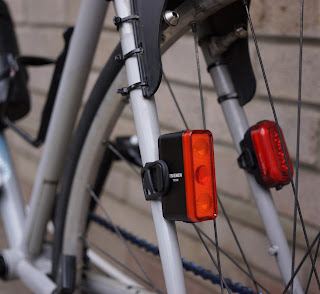Now, short of a huge lottery win (The sort that buys large freehold property with even bigger workshops, welders, and all manner of tooling joy) I won’t be indulging but building Denise and to a lesser extent, Ursula’s upcoming modernisation has brought me back to the spring/summer of 1989 and Specialized’s Rock Combo.(11) Specialized RockCombo Owners | Facebook Many are now heralding it as the first gravel bike-a relatively lightweight go anywhere machine based around a cro-moly frameset. The 19.5-inch version had a 42-inch wheelbase, 17-inch chainstays and of course, four-point carrier fixings, big wide swoopy drops, Turbo saddle, Suntour XCD, thumb shifters and a triple 3x7 range.
I recall it being pitted against tourers in a magazine group test and stock, with the 26x1.5 tyres it would’ve been a perfect off the peg mile muncher for me- had I the money- bearing in mind that I was on the cusp of turning 16 and I recall the Rock Combo being around the £450-500 mark. Bear in mind, I’d bought a used Claud Butler Super Dalesman from a dealer for £250 earlier that year, so there wasn’t the budget (or parental tolerance) for another machine. Time machine? Well, that would be seriously handy, and I would’ve corrected some decisions before they had the sometimes-lasting impact they did…
Again, much as I love the Rock Combo and would give one a loving home, I wouldn’t pay classic, dare I say nostalgic prices for one. Between Denise and Ursula and their mix of retro and contemporary, my dirt riding needs are very well catered for.
There were some great concepts that fell out of fashion, but a lot went extinct for good reason. Front loading stems being prime examples. Sure, they have a place on older builds, but I greatly appreciate the ability to pop the stem face off and slot the bars in place.
No need to go through the rigmarole of removing the bar tape, accessories, brake levers etc. Talking of retro, though I like Denise’s gear cable run, the Oxford Aqua Evo bar bag had me thinking I may need to reroute to prevent fouling… On balance, the Aqua EVO is possibly a better fit for the fixed gear winter/trainer, since it’s a disc setup, so no cable/hanger fouling hassles. We’ll see.
I’m very fond of the Shimano PD ED 500 Shimano PD ED 500 Pedals | cycling-not-racing (sevendaycyclist.com) but changing the Wellgo MO94B WELLGO MO94B SPD PEDALS | cycling-not-racing (sevendaycyclist.com) was an inspired choice, the platforms giving greater support, especially off road and Denise’s lofty bottom bracket means no grounding issues, even when cornering aggressively along tightly winding singletrack. They’re staying.
After some further reflection and light tweaking, the Suntour SE cantilevers and I bonded. Setup is a little more involved than a traditional cantilever but not overly complex. The arms are centred by loosening (one at a time) with a 5mm Allen key and aligning with a 16mm cone spanner. I took this opportunity to tweak the cable tension, pulling it fractionally tighter. There’s a little more travel at the lever than I was familiar with but when the pads bite, fierce, yet controllable power is on tap.
Since I had the Allen keys out, I switched the Ergon All Road for the Madison Flux and then of course, decided the Carradice Carrady was a better bet, given the 600-denier polyester/PVC material was much easier to wipe clean. Of course, a ride the following morning confirmed it was too large and binding on the WTB tyre (!) Back went the SQR Tour.
Now, while I liked the lived-in, long-standing patina, after 23 years, I was also conscious of it needing a deep clean and re-proofing. Ditto the Carradice Super C Rack Bag, which had served for a decade or so. The fabric is best cleaned by brushing residual dirt off and then lightly cleaning with a sponge and warm soapy water. Allow it to dry thoroughly. The reproofing wax only needs a light, sparing application and cured with a hairdryer on a high heat setting. I have every intention of keeping them going for as long as reasonably possible. I love the SQR system’s rigidity and carrying capacity both volume and weight.
Talking of wax, I’ve switched Denise’s KMC chain to Blub Wax. I needed to give the Finish Line Grunge Brush a good testing. True to claims, it will work dry-I simply sprayed some neat degreaser on the bristles, chain and cassette and went to town. Rinsed with warm water, we’d gone from scuzzy to sparkling in a matter of five minutes.
The wax seems to cure in 30 minutes, seems temperature stable and does the typical wax thing, trapping grit and other contaminant before it can do anything destructive, then flaking off, leaving only a clean, filmy lubricant layer behind. Corrosion resistance seems better than traditional blends but the need to replenish if the bike’s not ridden for 48-hours is a little annoying. This sounds as if this is a component in common with its Ceramic stablemate. Ending on a lube note, here’s my review of the Wolf Tooth WT-1 All Conditions Lube Wolf Tooth WT-1 All Conditions Chain Lub | cycling-not-racing (sevendaycyclist.com)



















